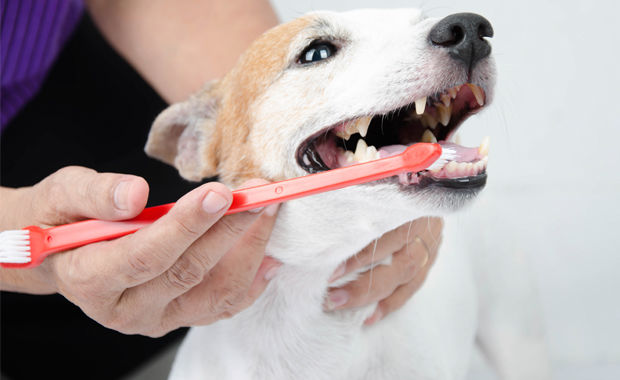How To Keep Your Pet Smiling With Proper Dental Care
Prevention and Treatment Why Your Pet’s Oral Health Matters

Healthy and happy begins on the inside. When you nourish what’s on the inside, you start to see those benefits on the outside. A nutrition-first approach to your pet’s total wellbeing is the best way to ensure their oral and overall health.
How common are oral health issues for pets?
Periodontal disease is very common — 80 percent of dogs and 70 percent of cats suffer from some form of the disease by the age of three. According to the American Veterinarian Medical Association (AVMA), most dental disease occurs below the gum line, making it difficult for pet owners to see. Unlike humans, cats and dogs are not susceptible to the formation of tooth cavities; the demineralization of teeth in dogs is also not common. Interestingly, mouth size matters when it comes to oral health in pets. Although all pets can be affected, small and toy breed dogs are more likely to develop issues and problems which can sometimes be more severe given their smaller jaw.
There are three main types of dental problems in cats and dogs: bad breath, gingivitis, and, most commonly, periodontitis. The mouth health plays a large role in overall health. Proper mouth hygiene can prevent bacterial from growing and a strong immune system can prevent future complications. Poor tooth health can also make it hard for pets — especially in their senior years — to properly chew food, which could lead to a bigger strain on their digestive tract and poor absorption of key nutrients. Dental disease can lead to discomfort, reduced enjoyment of meal time, and can negatively impact a pet’s mood and wellbeing.
How can I make sure my pet’s mouth stays healthy?
Prevention is key when it comes to dental health. Consistent care by pet owners, such as brushing their pet’s teeth weekly is the most effective means of protection. A good recommendation is coconut oil, a natural anti-microbial, used on a pet appropriate tooth brush. It does take hard work, but the rewards are worth the efforts for a happier and healthier pet.
The type of recipe also matters. Given the prevalence of oral health issues in cats and dogs, pet foods using smart, natural ingredients are the best option. Choosing pet foods with ingredients from specially selected fibres, and some key nutrients such as vitamin E and selenium, are the best option to keep your pet smiling. Kibble texture and shapes that promote mastication are also key. When choosing a dry kibble, make sure to consider size, shape, and textures that benefit their oral health.
A healthy diet is especially important as your pet ages, since issues increase in severity as pets grow older. A good choice for senior pet food may include the use of green tea, which has been shown to act against canine dental plaque bacteria. For small and toy dog breeds, other innovative options to ensure their oral health include al dente kibbles, which are designed to promote chewing and further contribute to good oral health.
Besides brushing and a smart diet, there are other great products on the market — from chew toys, dental floss, to plaque reduction toys — which when combined with periodic vet visits can contribute to a successful oral health program.
How else can I maintain my pet’s overall health?
Oral health is important, but it`s only one of the many factors contributing to your pet’s overall health. To ensure your pet remains healthy, it is important to choose pet foods that take a whole body approach to nutrition. It is also important to look for foods that use natural recipes, optimum combinations of ingredients, and easy to digest proteins.




.jpg)